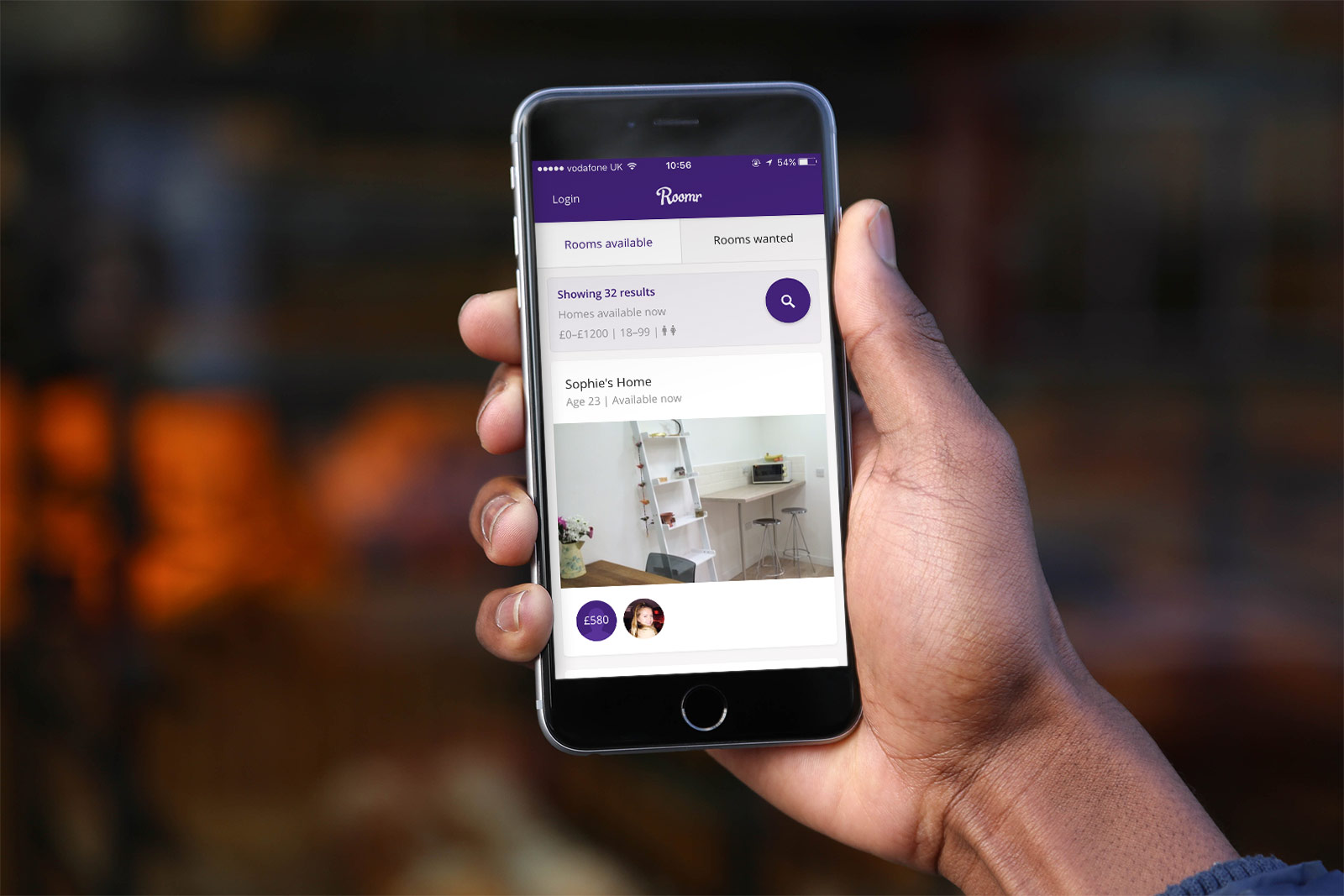Roomr isn’t about filling space but building houseshares. It champions housemates, community, friendship, the second family. I had a chat with co-founder Paul about the app, and how it plans to solve, and make enjoyable, the housesharing search in London.
The home has changed. We don’t establish roots the way we used to anymore. We are expanding its definition beyond brick borders. With the rise of the sharing economy, led by companies like Airbnb and Couchsurfing, homes are no longer seen as private, isolated dwellings, but open and inviting to all.
"OK, this could be something big, so I’m going to just lock myself away and build it out"
Created by ex-colleagues, Jordan and Paul, Roomr, like many great things in life, came as a result of multiple side-projects: “Lots of them make it as far as a sketch” Paul tells me, “some visual design and a few get to the prototype stage. Everything from subscription groceries to location-based team finding apps. Roomr was different because I thought: OK, this could be something big, so I'm going to just lock myself away and build it out. It took many evenings and late nights, but I got it to a place where I felt it was step 0.1 (a proof of concept) rather than just step zero (a good idea).”
“The past 5 years living in London led me to think that there must be a better way.” “I used Marvel to build a simple one pager to introduce me and my friend, as a way for potential housemates to get to know us. We wanted to find someone who we’d get on with and be friends as well as housemates. I shared it on our room ad and the response was really positive.”
And he's right, there must be a better way. London is shocking when it comes to finding a place, with extortionate rent made worse by bad technology. Sites like Gumtree, Craiglists and Spareroom, are messy to use, unreliable and stressful. The experience is never a straight line, but resembles more of a maze with seemingly no way out. Roomr cuts it down to a 3-step process by standing as the mediator between the person looking to be part of a houseshare and those who are looking for someone to join them. Recently, Roomr used a Squarespace site with embedded Marvel prototypes to test its UI. With the option of either the full app experience or a step-by-step user journey, the process shows just how straight-forward the journey towards finding a houseshare can be.
Roomr's commitment to its users extends beyond the usual act of customer support. “We try to hold regular focus groups with users and the wider housemate community to gage feedback on our app and new releases but also our direction and concept too. I think it's really important and we encourage users to get in touch with feedback, good or bad.”
I was warmly invited to one of these focus groups. It took place at the AnalogFolk studio, one of Roomr's backers and where Paul used to work before taking the plunge:
“Although I loved my job as a product designer, I wanted to pursue Roomr full time. I had coffee with Bill (co-founder of AnalogFolk) and told him I was planning to do so and showed him why. I pitched him Roomr and he loved it. They were really supportive and wanted to back the project. 6 weeks later, Jordan and I had left our jobs and began full-time working on Roomr - they were kind enough to give us space in their very nice studio too.”
“Although I loved my job as a product designer, I wanted to pursue Roomr full time."
In a low-lit room, we all sat around a large table on which there were scattered crisps and beer. Everyone was eager to listen in, and share their thoughts, on how things can be fixed. Paul was warm, relaxed, and relatable, often encouraging conversations through questions. There were plenty of horror stories to share: landlords breaking in, agency fee scams, sharing a room with 12 other people. Trust was the biggest concern, and everyone felt like these services were designed to break trust, instead of build it.
Roomr is designing to build trust. “Our approach to design is always with a heavy focus on UX. As a designer, I always saw myself between the tech guys and the users - figuring out the problem and working to find a solution. So our approach to Roomr was the same. Jordan and I worked super closely to make sure what we were designing was feasible, while testing along the way to make sure it was usable as well as enjoyable to use.”
The first thing you notice when you use Roomr is that the pictures are of people first, rooms second. Profiles are tagged by individual interests, which encourages people to connect through similarities. Profiles are also reviewed individually for peace of mind: no ads, no agencies or scams can get even a foot in the door. There’s also a map to show where the place is to give people a broader context of their potential new home: is it close to work? Is it near a train station? Where’s the nearest Tesco? Effectively, Roomr is breaking down barriers by giving people more insight and power when it comes to housesharing searches.
We are now part of the so-called 'Generation Rent', and according to PWC, this will keep rising from 20% to 25% by 2025. But it’s not strictly because we can’t afford it anymore (there’s always the option of saving up or taking out loans), but a change of belief. Taking out a mortgage to own a home, for example, used to be on everybody’s bucket list. Now it sits in the future, as it always does, but there's less urgency to obtain it. Instead, more of us are embracing houseshares.
There are many benefits to housesharing: the splitting of bills and responsibilities such as cleaning, but mainly, it’s the people. Those who are already doing it says it’s the latter that makes housesharing one of their best experiences ever, in which multiple worlds come together under one roof, over Sunday roasts and Netflix on Fridays. By reframing the problem and shifting the focus to who you’re living with instead of just where you’re living, Roomr is putting housemates at the centre of the experience.
Download the free app here.




